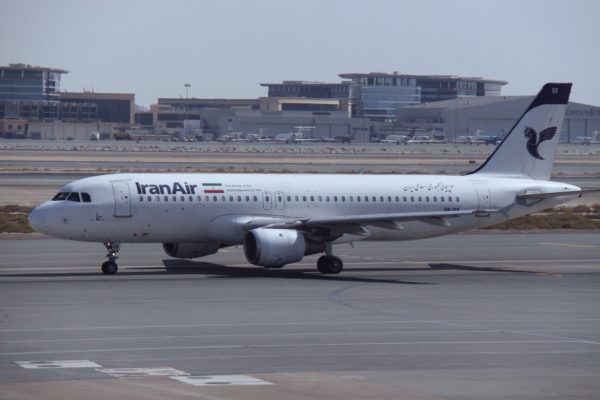
 From Our Special Correspondent
From Our Special Correspondent
Massimo A. Alberizzi and Monica A. Mistretta
Nairobi, March 15th 202o
Iran Air flights to Italy and Europe have not stopped: the Iranian authorities in the midst of Coronavirus emergency, have banned travel between provinces of the country, but have not stopped the planes that take off every day for Italy and European capitals. There is little clearcut reports about the Covid-19 outbreak that has hit Iran, already strangled by US sanctions. Yesterday President Hassan Rouhani met with his advisers and decided on a further crackdown on the press and information: everything that comes out on the Coronavirus in Iran will have to be kept under control to prevent Tehran from remaining isolated for fear of the spreading.
Since yesterday Iran Air started making a stopover in Pescara, a city in the Abruzzi region on the Adriatic Sea: the authorities of the international airport Pasquale Liberi stated that during the refueling operations all passengers will remain on board. No other European airport is willing to defy US sanctions to refuel the tanks of Iran’s national airliner, so large Airbuses bound for European cities will make a stopover in Abruzzi.
Three days ago the airport in Rimini was closed, this is where Iran Air’s planes had begun to fly in January, in the first days of the Coronavirus emergency in Iran. In an article of a few days back, Africa ExPress reported of these curious ins and outs of planes to and from the Islamic Republic. Now in Rimini, between the city and the province, there are almost 400 positive patients: there is nothing at the moment demonstrating a link between the Iranian company’s stopovers and the rate of infections.
The National Health Institute stated however that the Covid-19 infection in our country would not originate from China and reported the presence in Lombardy of a person of Iranian nationality, allegedly infected in Iran. There was no follow-on to this news.
The Pasquale Liberi airport in Pescara has also been closed since yesterday, except for emergencies: but Iran Air’s planes refueling stop over should continue throughout the month.
The choice of the Abruzzo city remains unexplained. Between counter-terrorism drills and false bomb alarms, the second half of 2019 for Pescara has already been quite eventful. Only the flights of the Iranian airline were missing to the picture.
It all seems to begin on May 28 when the Pescara Airport Border Police carried out a drill simulating the boarding of three passengers evading controls.

Three months later, on 9th September, an anonymous caller stated: “There are four nuclear devices ready to blow at Pescara rail station”. It was a false alarm, but the entire railway line through the city and the eastern Italian North-South transport backbone remained blocked for two hours.
On December 5th: at 8.40 AM a new drill takes place at Pescara airport with about 70 people involved in the simulation of a weapons and explosives attack.
Also noteworthy, the now famous military column parading the A14 Adriatica Highway at 23.00 on March 11 in full Coronavirus emergency. It is not clear whether the tanks were part of the NATO Defender Europe 20 exercise as reported by the local newspaper “il Centro”: a few hours earlier the US military Command decided to reduce the scope of the training so to avoid any spread and in parallel Minister Lorenzo Guerini announced that Italy would not part take the exercise.
Tensions between Europe and the United States are very high on Iran’s foreign policy strategy: a few days ago Brian Hook, the US Special Representative for Iran highlighted that under the terms of the Iran nuclear deal the UN embargo on the sale of conventional weapons to Iran would expire in October. China, Europe and Russia, for whom the agreement is still in force, will be free to supply arms to Tehran. America at least on this point is united behind Trump: the UN arms embargo on Iran must be extended. Europe does not comment whereas Italy with its fuel supplies to Iran Air, is at the forefront of US sanctions. The game is becoming increasingly tricky and dangerous.
Massimo A. Alberizzi
Monica A. Mistretta
massimo.alberizzi@gmail.com
monica.mistretta@gmail.com

